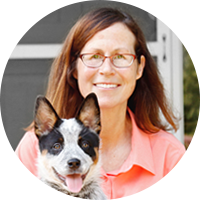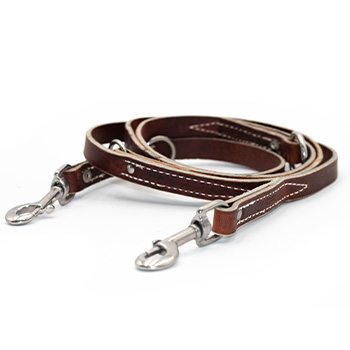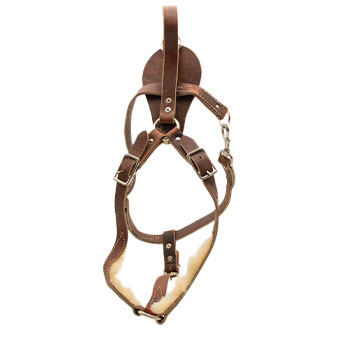May 18, 2011
I have plans on becoming a trainer and want to become a k9 officer. How is it that hanging a dog and beating him forces him to respect you?
Full Question:
Hello Mr. Frawley,My name is Michael. I am currently on active duty in the united states marine corps. I can all ways be found going threw your web site reading as much information as I can take in on dog training. With all the so called " trainers" out there you are by far the only one I would consider to let train my dog. To make this email short and sweet I came across an article entitled "Real men don't lynch" http://la.indymedia.org/news/2006/08/174957.php
I have plans on becoming a trainer and want to become a k9 officer when I am finished with my duties here in the corps. Can you tell me if this is a common practice in Schutzhund and training police and military k9s. I have read on your site that you feel it is important to build a bond with your dog because he can like you but not respect you as a pack leader is this how you establish being a pack leader or is this the result of bad training practices. How is it that hanging a dog and beating him "forces" him to respect you? I would appreciate any information you can give me thank you.

 Ed's Answer:
Ed's Answer:
These are very good questions.
In answering this I will also begin by saying that this topic is an issue that creates extreme emotion in people who don't understand dog aggression (specifically serious handler aggression) and pack structure.
While I have only had time to skim the link to your article - I have seen examples of animal abuse on the internet by various trainers. I can only say that there were no excuses for training methods that are unwarranted animal abuse. When it happens the handlers or owners should be punished.
With this said, some "selection tested police service dogs" (dogs in training to be police dogs) or some police service dogs that are mature adults occasionally have "handler aggression problems". Most often this is related to dogs with dominance issues. This form of aggression can be very dangerous for the handlers because these dogs have been trained to bite humans, so when they bite they do so with aggression that can cause serious injuries.
Unfortunately the issue of handler aggression is best dealt with at 7 or 8 months of age when dogs are still puppies. Dogs that are selected for police work are often 18 to 24 months of age, they are no longer puppies they are mature adults.
When dogs are young (7 months) dealing with emerging handler aggression and rank issues can be dealt with rather easily to show the dog that they are not pack leaders and this aggressive behavior will not be tolerated. At 7 months dogs "back down" rather quickly in deference to their handlers leadership. That doesn't happen if the dog is allowed to manifest handler aggression into adulthood.
When owners don't address aggression problems until the dog is 20 months old they are faced with a completely different scenario than what they had when the dog was 7 months old. The fact is it's almost impossible to bond with adult dogs with handler aggression because they are always trying to dominant you. These are dogs that have behavioral problems that make them very hard to live with.
Often times what happens with dogs like this is they are put to sleep because they end up biting the wrong people. This happens all too often with pet owners and it can even happen with inexperienced service dog owners.
There are times when an adult dog can have its dominance turned around with rather extreme measures by using our dominant dog collars. This does involve taking the dogs air away when the dog tries to attack the handler. These dominant dogs learn rather quickly that they are not a higher ranking member of the pack than the handler they just tried to bite. This process is normally over very quickly, it takes 3 or 4 sessions for a dog to realize he had better not try and bite his owner/handler. With police service dogs this should be done under the supervision of an experienced trainer or instructor. While it's an ugly process it often saves the life of a dog because it is a last resort that's done RATHER THAN killing the dog.
There are always going to be so called behaviorists who think they can counter condition a dog with motivational methods. These are people who have worked with shelties and golden retrievers their entire career. Their methods may work with some (emphasis on SOME) family pets with minor problems. Their methods do not work with dogs that have true aggression. When faced with dogs like these - these people walk away with lame excuses on why this dog is un-trainable.
These self proclaimed behaviorists often offer dangerous advice that DOES NOT WORK !!! and in fact it is all too often drop dead stupid. When dog owners try these methods and the dogs continue to bite the owners or others the dogs end up being put to sleep. In many cases this is too bad because with pack structure training, correct obedience training and controlling the environment that these dogs are allowed to live in they can live safe lives.
With all this said, when rank has been established it is possible to form a bond with many of these dogs. Handlers can train them motivationally and have a great relationship with the dog. But they must always micro-manage the environment the dogs are allowed to live in, they must always micro-manage the dogs behavior through obedience training and they must be aware of dominance raising its ugly head. When that happens correcting the problem seldom requires the extreme measures used to extinguish the original behavior. It only requires the handler reminding the dog who the pack leader is.
In closing, there is no place in dog training for beating or hitting a dog. Beating and hitting is not a correction, it is animal abuse.
Kind Regards,
Ed Frawley
In answering this I will also begin by saying that this topic is an issue that creates extreme emotion in people who don't understand dog aggression (specifically serious handler aggression) and pack structure.
While I have only had time to skim the link to your article - I have seen examples of animal abuse on the internet by various trainers. I can only say that there were no excuses for training methods that are unwarranted animal abuse. When it happens the handlers or owners should be punished.
With this said, some "selection tested police service dogs" (dogs in training to be police dogs) or some police service dogs that are mature adults occasionally have "handler aggression problems". Most often this is related to dogs with dominance issues. This form of aggression can be very dangerous for the handlers because these dogs have been trained to bite humans, so when they bite they do so with aggression that can cause serious injuries.
Unfortunately the issue of handler aggression is best dealt with at 7 or 8 months of age when dogs are still puppies. Dogs that are selected for police work are often 18 to 24 months of age, they are no longer puppies they are mature adults.
When dogs are young (7 months) dealing with emerging handler aggression and rank issues can be dealt with rather easily to show the dog that they are not pack leaders and this aggressive behavior will not be tolerated. At 7 months dogs "back down" rather quickly in deference to their handlers leadership. That doesn't happen if the dog is allowed to manifest handler aggression into adulthood.
When owners don't address aggression problems until the dog is 20 months old they are faced with a completely different scenario than what they had when the dog was 7 months old. The fact is it's almost impossible to bond with adult dogs with handler aggression because they are always trying to dominant you. These are dogs that have behavioral problems that make them very hard to live with.
Often times what happens with dogs like this is they are put to sleep because they end up biting the wrong people. This happens all too often with pet owners and it can even happen with inexperienced service dog owners.
There are times when an adult dog can have its dominance turned around with rather extreme measures by using our dominant dog collars. This does involve taking the dogs air away when the dog tries to attack the handler. These dominant dogs learn rather quickly that they are not a higher ranking member of the pack than the handler they just tried to bite. This process is normally over very quickly, it takes 3 or 4 sessions for a dog to realize he had better not try and bite his owner/handler. With police service dogs this should be done under the supervision of an experienced trainer or instructor. While it's an ugly process it often saves the life of a dog because it is a last resort that's done RATHER THAN killing the dog.
There are always going to be so called behaviorists who think they can counter condition a dog with motivational methods. These are people who have worked with shelties and golden retrievers their entire career. Their methods may work with some (emphasis on SOME) family pets with minor problems. Their methods do not work with dogs that have true aggression. When faced with dogs like these - these people walk away with lame excuses on why this dog is un-trainable.
These self proclaimed behaviorists often offer dangerous advice that DOES NOT WORK !!! and in fact it is all too often drop dead stupid. When dog owners try these methods and the dogs continue to bite the owners or others the dogs end up being put to sleep. In many cases this is too bad because with pack structure training, correct obedience training and controlling the environment that these dogs are allowed to live in they can live safe lives.
With all this said, when rank has been established it is possible to form a bond with many of these dogs. Handlers can train them motivationally and have a great relationship with the dog. But they must always micro-manage the environment the dogs are allowed to live in, they must always micro-manage the dogs behavior through obedience training and they must be aware of dominance raising its ugly head. When that happens correcting the problem seldom requires the extreme measures used to extinguish the original behavior. It only requires the handler reminding the dog who the pack leader is.
In closing, there is no place in dog training for beating or hitting a dog. Beating and hitting is not a correction, it is animal abuse.
Kind Regards,
Ed Frawley
95% (20 out of 21)
respondents found this answer helpful


Can't find what you're looking for?




